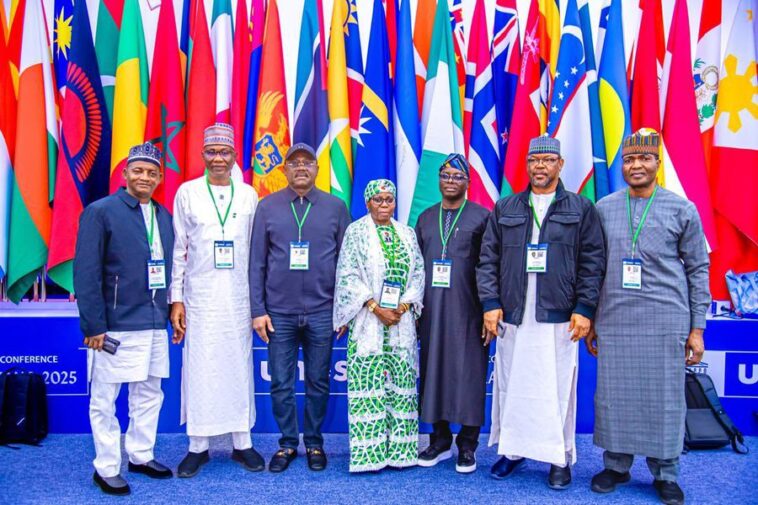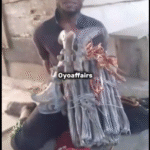Nigeria Approved as Host of UNESCO’s First Category-2 Media and Information Literacy Institute: In a landmark development, Nigeria has been approved as the host of the UNESCO Category-2 International Media and Information Literacy Institute (IMLI) — the first of its kind in the world.
The decision was formally announced during the 43rd General Conference of the UNESCO Communication and Information Commission (CI Session) held in Samarkand, Uzbekistan, marking a significant milestone in Nigeria’s global leadership in media and information literacy.
With this approval, Nigeria is now strategically positioned to take the lead in the global fight against misinformation, disinformation, and fake news, while driving international research, policy development, and digital literacy initiatives.
Speaking at the UNESCO conference, the Minister of Information and National Orientation, Mohammed Idris, described the recognition as “a strong vote of confidence in our nation.”
He emphasized that the UNESCO Category-2 International Media and Information Literacy Institute, Abuja, will serve as a global observatory and training hub, empowering individuals and communities worldwide to navigate the digital space with confidence, critical thinking, and responsibility.
“The Nigerian government, under the leadership of President Bola Ahmed Tinubu, is committed to fostering a society where responsible free speech is seen as the engine of national progress,” Minister Idris said.
“A central pillar of our strategy is the democratization of digital opportunities, with media and information literacy as the key driver.”
Idris recalled that Nigeria’s journey toward this achievement began in October 2022, when the country hosted the 10th Global Media and Information Literacy and Feature Conference in Abuja. During that event, Nigeria made a bold pledge to UNESCO to establish a dedicated international institute for media and information literacy in the country.
According to the Minister, the latest approval from UNESCO fulfills that promise and reflects Nigeria’s dedication to promoting truth, transparency, and responsible communication in the digital era.
“I want to seize this opportunity to congratulate President Bola Ahmed Tinubu on this achievement, which is a reflection of his commitment to the Nigerian project, aptly encapsulated in the Renewed Hope Agenda,” he said.
“This is a big win for Nigeria and the entire African continent.”
The Minister further pledged that the federal government would work closely with UNESCO to ensure the institute meets global standards, both in terms of infrastructure and governance capacity.
He revealed that the formal launch of the International Media and Information Literacy Institute is scheduled to take place in February 2026 in Abuja, where UNESCO officials, member states, and strategic partners will be in attendance.
“We are assembling a multidisciplinary team of experts to actualize the Institute’s global mandate,” Idris added.
The event in Samarkand was attended by several top Nigerian officials, including:
- Senator Kenneth Eze, Chairman, Senate Committee on Information and National Orientation
- Hon. Olusola Fatoba, Chairman, House Committee on Information, National Ethics and Values
- Dr Mohammed Bulama, Director General of the Federal Radio Corporation of Nigeria (FRCN), representing the Minister
- Malam Abdulhamid Salihu Dembos, Director General, Nigerian Television Authority (NTA)
- Dr Olalekan Fadolapo, Director General, Advertising Regulatory Council of Nigeria (ARCON)
- Malam Jibrin Baba Ndace, Director General, Voice of Nigeria (VON)
- Dr Hajo Sani, Nigeria’s Ambassador to UNESCO
The delegation’s presence underscored Nigeria’s commitment to the international information ecosystem and the broader vision of building a digitally literate society.
UNESCO’s approval of Nigeria as host of the Category-2 Media and Information Literacy Institute is expected to attract global researchers, policymakers, and educators to Abuja — strengthening Nigeria’s role as a continental hub for media education and digital governance.
Analysts say the development also aligns with President Bola Ahmed Tinubu’s Renewed Hope Agenda, which emphasizes inclusive access to technology, education, and digital empowerment as drivers of national growth.
The institute is expected to play a critical role in promoting ethical communication, media transparency, and global collaboration in the fight against digital manipulation and information disorder.
As the countdown begins toward the 2026 official launch, experts agree that this recognition represents a new chapter for Nigeria and Africa in shaping the future of media literacy and responsible communication on the world stage.





